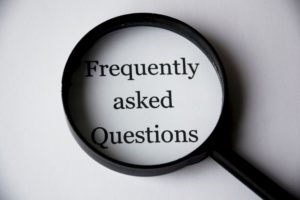
The Foresight team regularly spends time answering our startup clients’ most pressing questions regarding Financial Modeling, IP Strategy, Valuation, and more. We’ve decided to share some of these important insights in our Startup Q&A Blog Series. This blog deals with valuing an early-stage startup when dealing with seed investors.
Question:
How Do I Value My Seed Stage Startup?
A Foresight client was preparing for a seed funding round, and asked us the best way to value their business. Because early-stage companies lack operating history, and in a majority of cases lack any form of revenue, assigning value to the startup cannot be done with “traditional” methods such as a discounted cash flow analysis or a revenue “multiple” approach. The client is launching a smart wearable health tracking device, and looking to substantiate a $12M pre-money valuation.
Answer:
- Know the Current Market Comps
Because early-stage startups cannot be valued on cash flows, investors often turn to the market to determine the “going rate” for businesses in any given sector. This is where the entrepreneur should start as well. Undervaluing your business in negotiations with investors means you will likely give up greater ownership percentage than is necessary – something that should be avoided at any stage of the business, not just the seed stage. Conversely, overvaluing your business could kill the deal before it even starts. When both the investor and entrepreneur are educated on current market conditions, the starting point of valuation negotiations can at least begin in the same ballpark. The ColleyGO publication is a great resource for starting your market research. Below is a sample chart from this report:
Not only can we gather the median pre-money valuation for seed companies of which was $16,725,000 in 2024 according to this chart, but we can also observe trends in seed stage valuation over time. Various public sources are available for valuation research by country, market, etc. As a starting point, Foresight’s client knows that they within the median range with the targeted $12M valuation.
- Know What Matters to Early-Stage Investors
Although it is a great starting point, most investors will be a bit more sophisticated in their valuation process than simply taking the market median. In particular, there are certain characteristics of a business that investors will consider when assigning value to an early-stage company. In 2011, Dave McClure, founder of the accelerator 500 Startups, shared insights on his methodology for valuing such companies. McClure said that each of these 5 components of a business were worth $1M in value:
- Market
- Product
- Team
- Customers
- Revenue
The value assigned to each point can change over time, and would probably be more than $1M today given the sharp increase in pre-money valuations since 2011. Each investor has her or his own heuristics.
When developing your pitch deck for the seed round, it is important to keep these factors in mind, and highlight those that are strengths of your own business. If you have existing, brand name customers, make sure to call them out. If you operate in a particularly large or “hot” market, emphasize this and quantify it in any way possible. Our client happens to have a particularly strong founding team with experience working with and launching products in similar industries. This will be a great point to emphasize when negotiating for their target valuation.
- Efrat’s “Bonus Point”
One component that is noticeably absent from McClure’s list, and that is particularly pertinent to Foresight, is Intellectual Property. IP gives companies an inherent advantage over the competition, and as such, such advantages should be considered in the valuation of the business. Traditional valuation methodologies often overlook the true value of IP to a business – something that Foresight tries to combat. For this reason, entrepreneurs should be acutely aware of the business’s IP value from the early stages and understand how it impacts the value of the business as a whole.
When considering your company’s IP and the value it adds to your business, make sure to consider all forms of IP, not just patents. A granted patent is undoubtedly something to hang your hat on when negotiating valuation, but remember to also highlight things like a strong brand, customer relationships, trade secrets, customer data, etc. Even the potential to develop these strong IP assets is something to be considered for your pitch (for example, the potential of amassing customer data even though you may only have a small number of subscribers at this stage). With 2 design patents and 4 provisional patents, our client certainly has some increased leverage in the valuation discussion.
- Bonus Note for Hardware Startups
Hardware startups are still very viable businesses, although they come with a number of inherent challenges that software or service startups do not face. Because of this (and because hardware is not the most trendy space), some early-stage investors may shy away from hardware deals.
For those entrepreneurs dealing with hardware, Foresight recommends a few things. First, be creative when developing your business model. One of the main drawbacks of traditional hardware businesses is that revenue is restricted to a single transaction. Modern business models, like we see in software, integrate things like subscriptions or upgrade plans to increase the recurring nature of the company’s revenue. Second, think about how software can work with your product. Even something as simple as a mobile application can open many more possibilities for your hardware business (customer data, premium content, community building, etc.). Finally, be mindful of your audience when pitching your business. Knowing that the word “hardware” might raise some red flags, be creative in how you present your idea to keep investors engaged. For our client, we suggested simply replacing any mention of the word “hardware” with words like “device,” or “delivery mechanism”.


